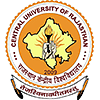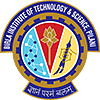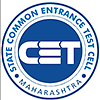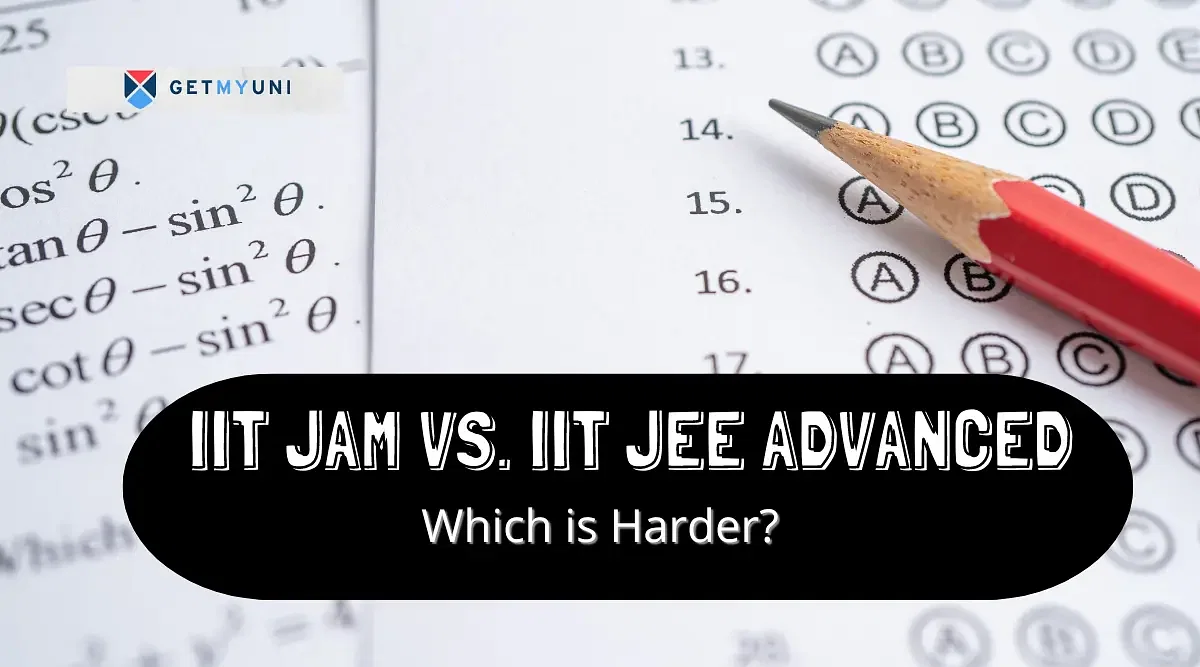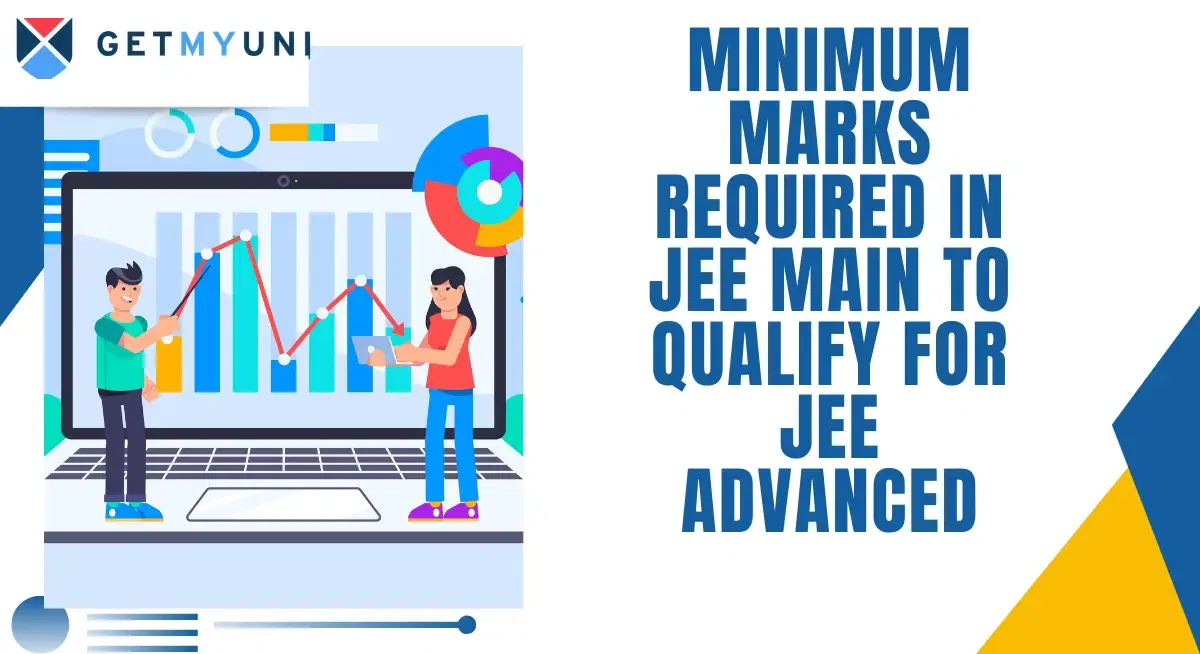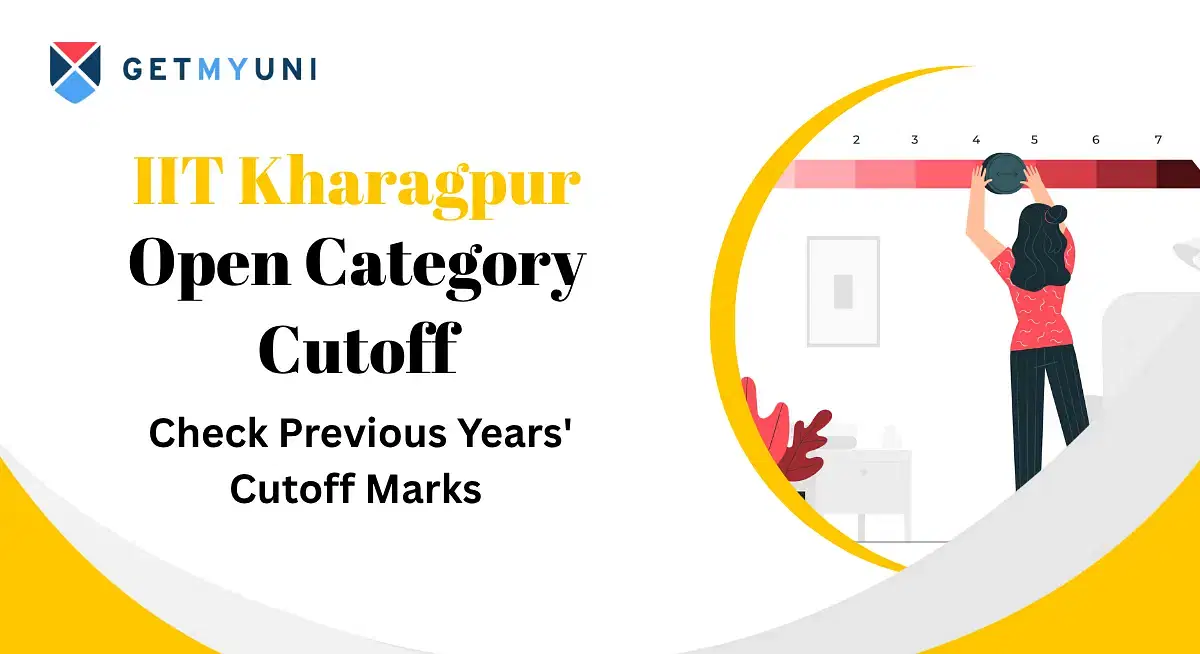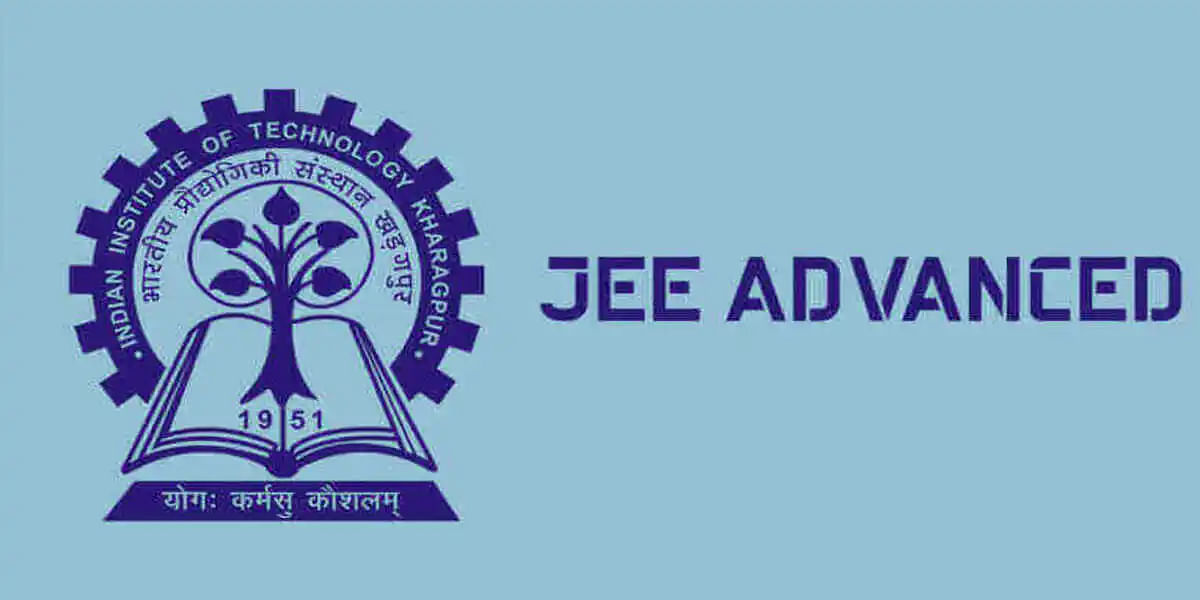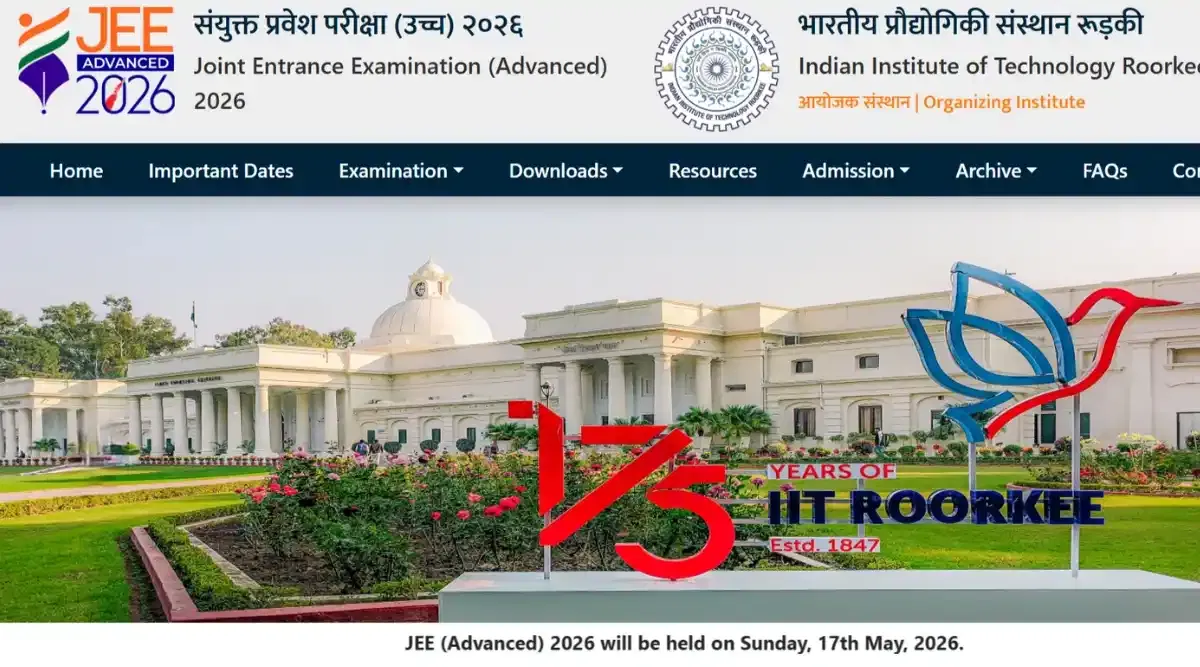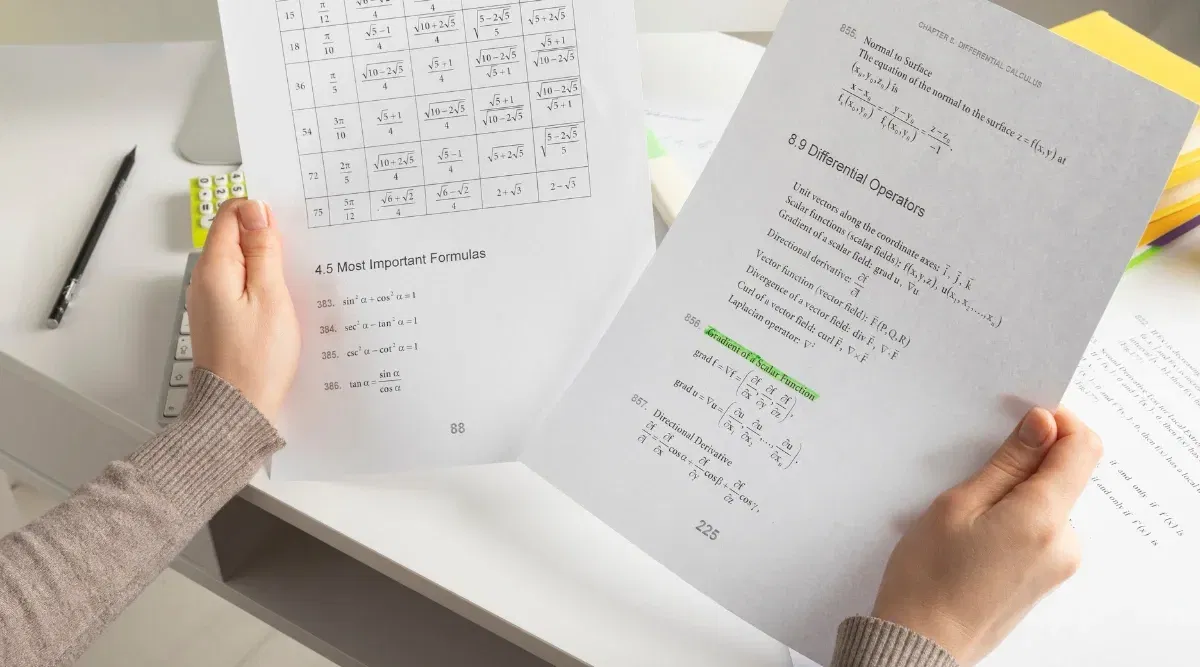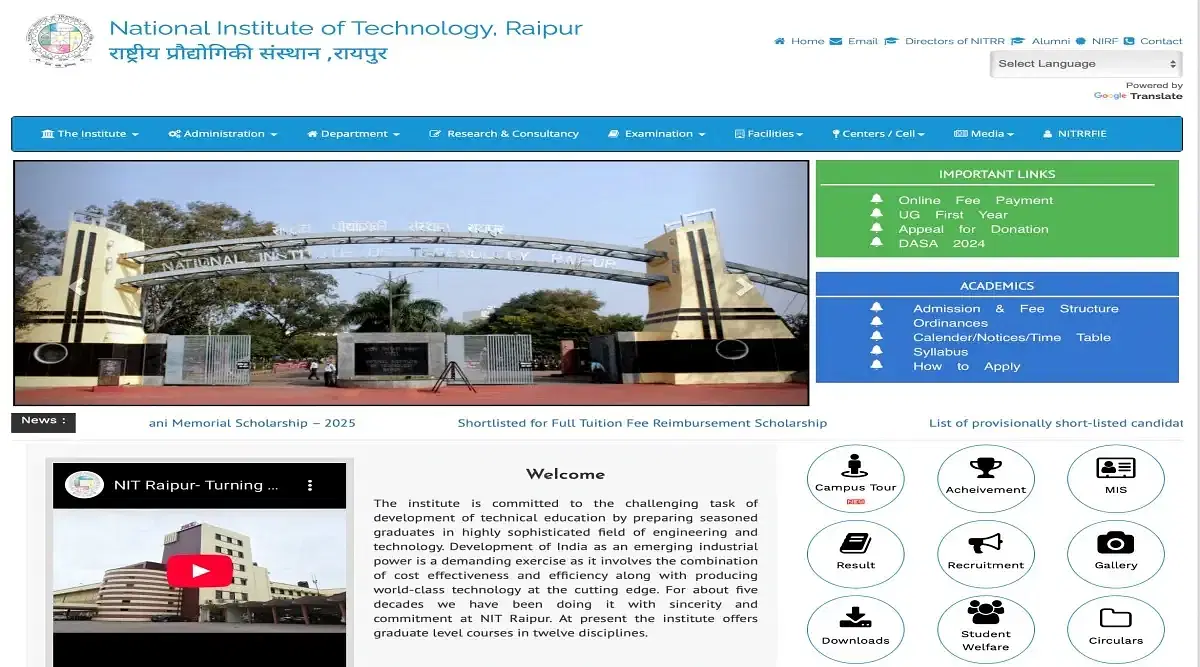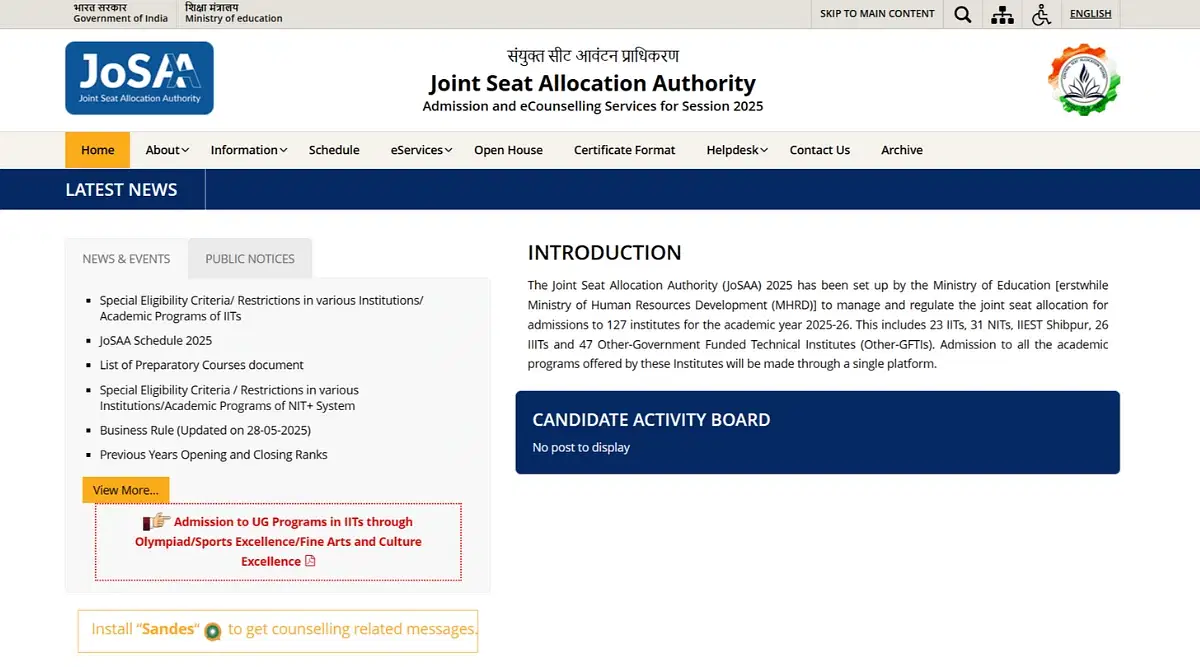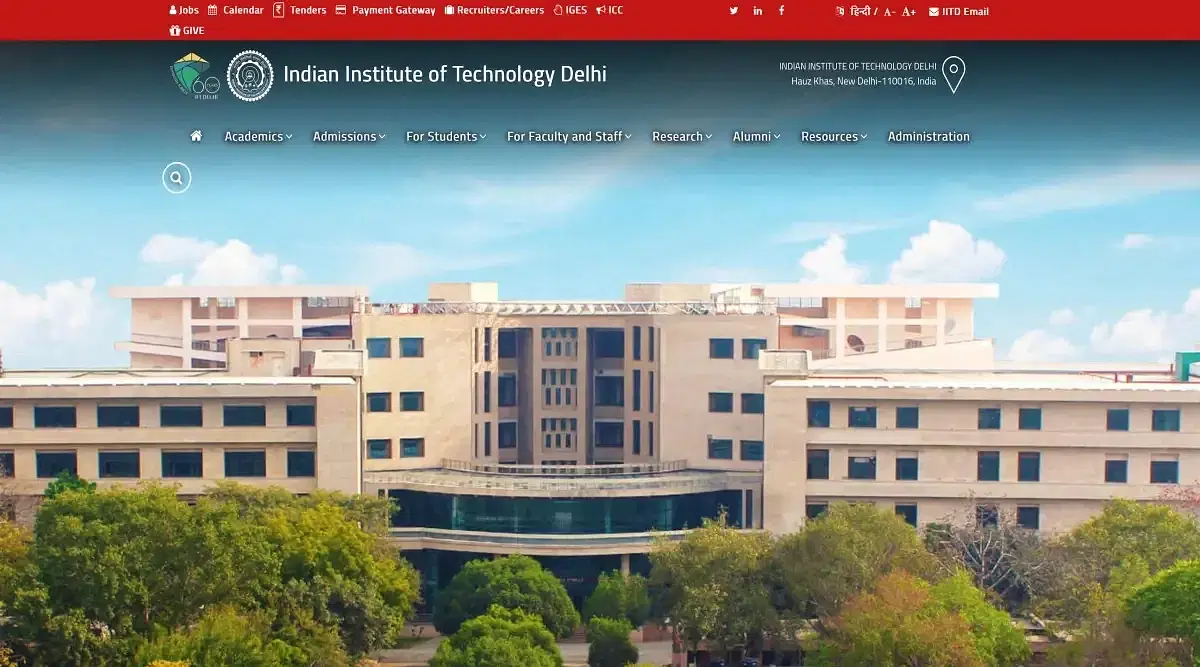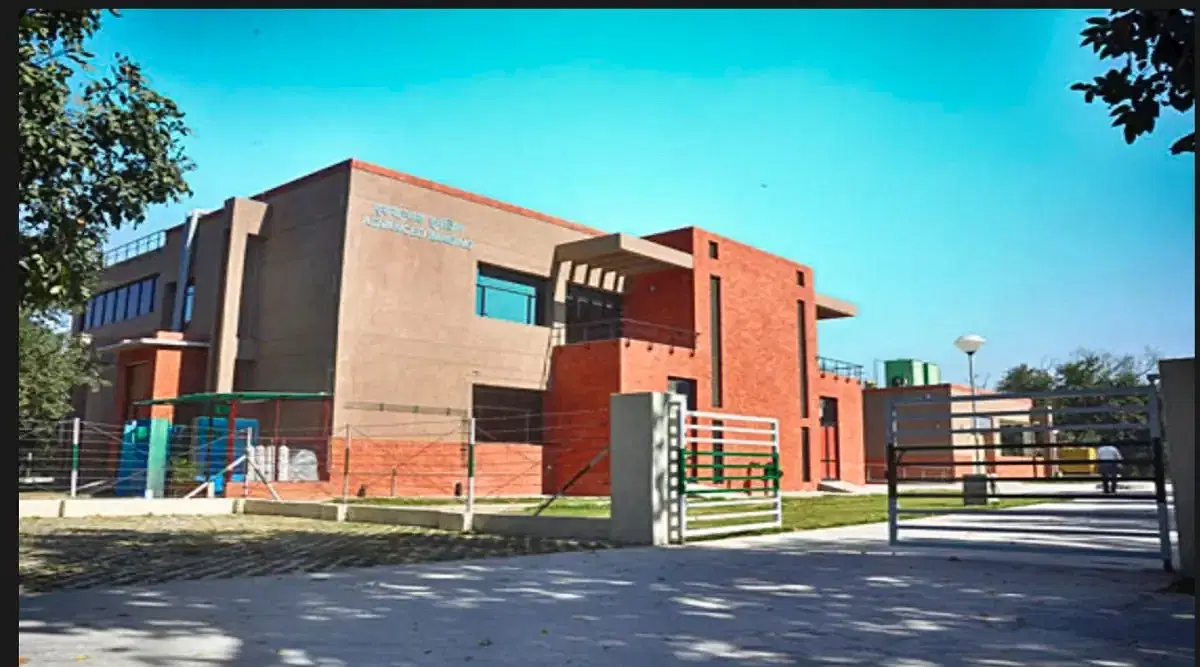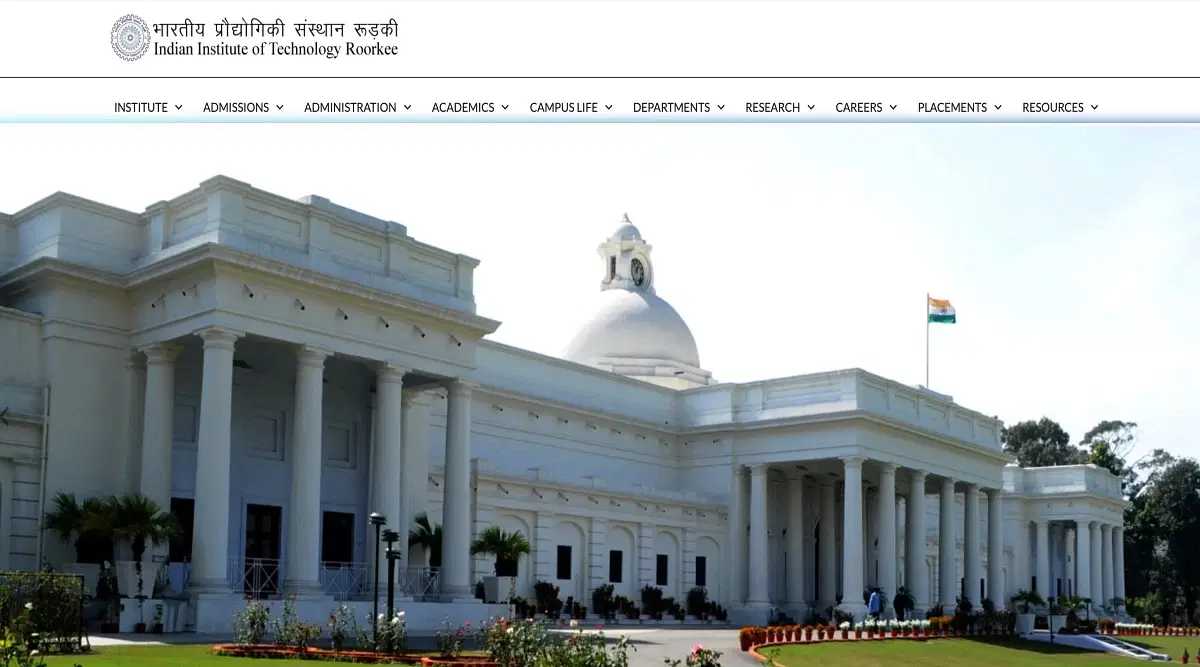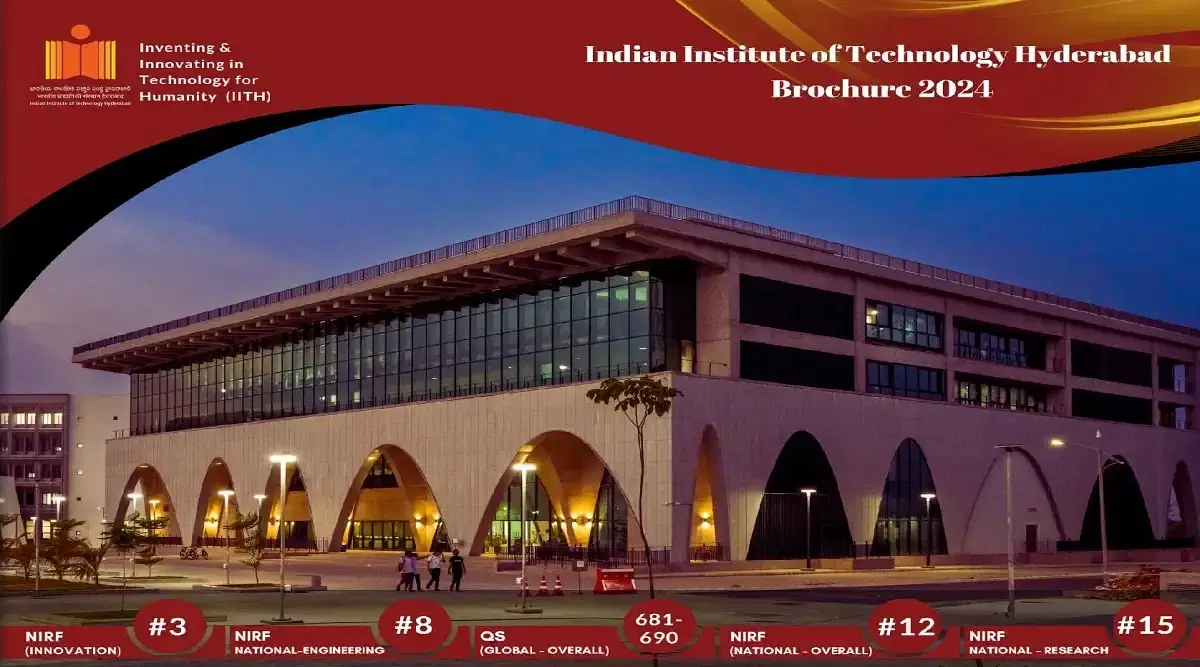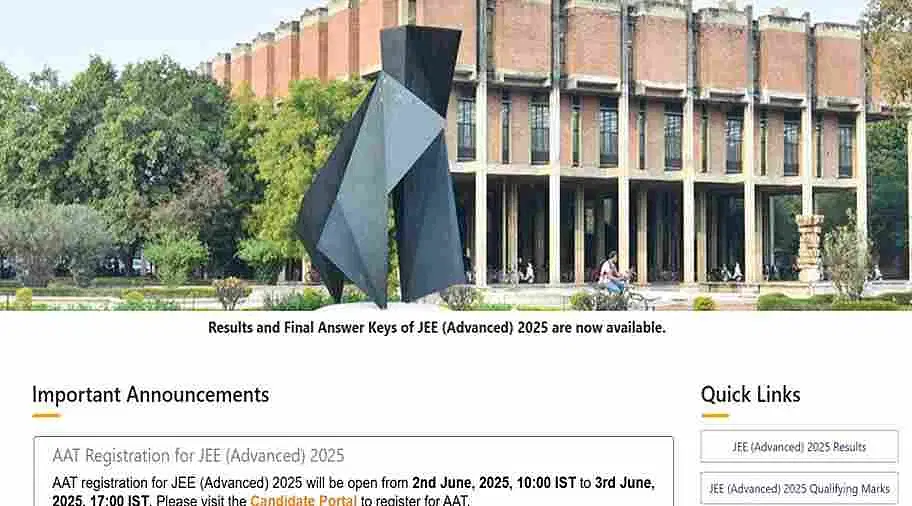
Table of Contents
The JEE Advanced syllabus 2026 comprises topics from classes 11th and 12th Physics, Chemistry and Mathematics. Before beginning your JEE Advanced 2026 preparations, you should have a look at the detailed syllabus to analyse the difficulty and familiarity with the topics.
JEE Advanced syllabus is framed as per the standard of IIT Level in order to assess the student's capabilities, reasoning, analytical and comprehension skills. The official syllabus PDF will be released soon, along with the official JEE Advanced 2026 brochure.
A compilation of the JEE Advanced 2026 detailed syllabus discussed below will help you gauge the study plan required to crack JEE Advanced 2026. JEE Advanced 2026 paper 1 & 2 syllabus for Engineering and Architecture exams, with the topic-wise breakup of each section, is given below.
Recommended: Attempt Free JEE Advanced Mock Test Here
Direct Link to Download the JEE Advanced Syllabus 2026
The JEE Advanced exam is in computer-based test. Before starting with the preparation, you must understand the JEE Advanced syllabus. The JEE Advanced syllabus 2026 will soon be provided by the conducting IIT, with the official brochure. You can find the old and revised syllabi of JEE Advanced in the table below:
| Particulars | Download PDF |
| JEE Advanced Revised Syllabus | Download |
| JEE Advanced Old Syllabus | Download |
Also Read: Best JEE Main and JEE Advanced 2025 Books for Physics
Subject-wise JEE Advanced Syllabus 2026
The JEE Advanced 2026 syllabus is divided across three subjects, namely, Physics, Mathematics and Chemistry. It is crucial to have a look at all the chapters to ensure that you score well on the test.
You can go through the subject-wise revised JEE Advanced syllabus below:
JEE Advanced Physics Syllabus 2026
The detailed JEE Advanced 2026 Physics Syllabus is provided in the table below. You can check the JEE Advanced syllabus topic-wise below:
|
Units |
Syllabus Topics |
|
Mechanics |
Kinematics in one and two dimensions (Cartesian coordinates only), projectiles; Uniform circular motion; Relative velocity. Newton’s laws of motion; Inertial and uniformly accelerated frames of reference; Static and dynamic friction; Kinetic and potential energy; Work and power; Conservation of linear momentum and mechanical energy. Systems of particles; Centre of mass and its motion; Impulse; Elastic and inelastic collisions. Rigid body, moment of inertia, parallel and perpendicular axes theorems, moment of inertia of uniform bodies with simple geometrical shapes; Angular momentum; Torque; Conservation of angular momentum; Dynamics of rigid bodies with fixed axis of rotation; Rolling without slipping of rings, cylinders and spheres; Equilibrium of rigid bodies; Collision of point masses with rigid bodies. Forced and damped oscillation (in one dimension), resonance. Linear and angular simple harmonic motions. Hooke’s law, Young’s modulus. Law of gravitation; Gravitational potential and field; Acceleration due to gravity; Kepler’s law, Geostationary orbits, Motion of planets and satellites in circular orbits; Escape velocity. Pressure in a fluid; Pascal’s law; Buoyancy; Surface energy and surface tension, angle of contact, drops, bubbles and capillary rise. Viscosity (Poiseuille’s equation excluded), Modulus of rigidity and bulk modulus in mechanics. Stoke’s law; Terminal velocity, Streamline flow, equation of continuity, Bernoulli’s theorem and its applications. Wave motion (plane waves only), longitudinal and transverse waves, superposition of waves; Progressive and stationary waves; Vibration of strings and air columns; Resonance; Beats; Speed of sound in gases; Doppler effect (in sound) |
|
General |
General Units and dimensions, dimensional analysis; least count, significant figures; Methods of measurement and error analysis for physical quantities pertaining to the following experiments: Experiments based on using Vernier callipers and screw gauge (micrometre), Determination of g using simple pendulum, Young’s modulus - elasticity of the material Surface tension of water by capillary rise and effect of detergents. Specific heat of a liquid using a calorimeter, focal length of a concave mirror and a convex lens using u-v method, Speed of sound using a resonance column, Verification of Ohm’s law using a voltmeter and ammeter, and specific resistance of the material of a wire using meter bridge and post office box. |
|
Thermal Physics |
Thermal expansion of solids, liquids and gases; Calorimetry, latent heat; Heat conduction in one dimension; Elementary concepts of convection and radiation; Newton’s law of cooling; Ideal gas laws; Specific heats (Cv and Cp for monoatomic and diatomic gases); Isothermal and adiabatic processes, bulk modulus of gases; Equivalence of heat and work; First law of thermodynamics and its applications (only for ideal gases); Second law of thermodynamics, reversible and irreversible processes, Carnot engine and its efficiency; Blackbody radiation: absorptive and emissive powers; Kirchhoff’s law; Wien’s displacement law, Stefan’s law. |
|
Electricity and Magnetism |
Coulomb’s law; Electric field and potential; Electrical potential energy of a system of point charges and of electrical dipoles in a uniform electrostatic field; Electric field lines; Flux of electric field; Gauss’s law and its application in simple cases, such as, to find field due to infinitely long straight wire, uniformly charged infinite plane sheet and uniformly charged thin spherical shell. Capacitance; Parallel plate capacitor with and without dielectrics; Capacitors in series and parallel; Energy stored in a capacitor. Electric current; Ohm’s law; Series and parallel arrangements of resistances and cells; Kirchhoff’s laws and simple applications; Heating effect of current. Biot–Savart’s law and Ampere’s law; Magnetic field near a current-carrying straight wire, along the axis of a circular coil and inside a long straight solenoid; Force on a moving charge and on a current-carrying wire in a uniform magnetic field. Magnetic moment of a current loop; Effect of a uniform magnetic field on a current loop; Moving coil galvanometer, voltmeter, ammeter and their conversions. Electromagnetic induction: Faraday’s law, Lenz’s law; Self and mutual inductance; RC, LR, LC and LCR(in series) circuits with d.c. and a.c. sources. |
|
Electro-Magnetic Waves |
Electromagnetic waves and their characteristics. Electromagnetic spectrum (radio waves, microwaves, infrared, visible, ultraviolet, x-rays, gamma rays) including elementary facts about their uses. |
|
Optics |
Rectilinear propagation of light; Reflection and refraction at plane and spherical surfaces; Total internal reflection; Deviation and dispersion of light by a prism; Thin lenses; Combinations of mirrors and thin lenses; Magnification. Wave nature of light: Huygen’s principle, interference limited to Young’s double slit experiment. Diffraction due to a single slit. Polarization of light, plane polarized light; Brewster's law, Polaroids. |
|
Modern Physics |
Atomic nucleus; α, β and γ radiations; Law of radioactive decay; Decay constant; Half-life and mean life; Binding energy and its calculation; Fission and fusion processes; Energy calculation in these processes. Photoelectric effect; Bohr’s theory of hydrogen-like atoms; Characteristic and continuous X-rays, Moseley’s law; de Broglie wavelength of matter waves. |
JEE Advanced Chemistry Syllabus 2026
In the table below, you will find the JEE Advanced 2026 Chemistry Syllabus in detail:
|
Units |
Syllabus Topics |
|
General Topics |
Concept of atoms and molecules; Dalton’s atomic theory; Mole concept; Chemical formulae; Balanced chemical equations; Calculations (based on mole concept and stoichiometry) involving common oxidation-reduction, neutralisation, and displacement reactions; Concentration in terms of mole fraction, molarity, molality and normality. |
|
States of Matter: Gases and Lights |
Gas laws and ideal gas equation, absolute scale of temperature; Deviation from ideality, van der Waals equation; Kinetic theory of gases, average, root mean square and most probable velocities and their relation with temperature; Law of partial pressures; Diffusion of gases. Intermolecular interactions: types, distance dependence, and their effect on properties; Liquids: vapour pressure, surface tension, viscosity. |
|
Atomic Structure |
Bohr model, the spectrum of hydrogen atom; Wave-particle duality, de Broglie hypothesis; Uncertainty principle; Qualitative quantum mechanical picture of hydrogen atom: Energies, quantum numbers, wave function and probability density (plots only), shapes of s, p and d orbitals; Aufbau principle; Pauli’s exclusion principle and Hund’s rule. |
|
Chemical Bonding & Molecular Structure |
Orbital overlap and covalent bond; Hybridisation involving s, p and d orbitals only; Molecular orbital energy diagrams for homonuclear diatomic species (up to Ne2); Hydrogen bond; Polarity in molecules, dipole moment; VSEPR model and shapes of molecules (linear, angular, triangular, square planar, pyramidal, square pyramidal, trigonal bipyramidal, tetrahedral and octahedral). |
|
Chemical Thermodynamics |
Intensive and extensive properties, state functions, First law of thermodynamics; Internal energy, work (pressure-volume only) and heat; Enthalpy, heat capacity, standard state, Hess’s law; Enthalpy of reaction, fusion and vapourization, and lattice enthalpy; Second law of thermodynamics; Entropy; Gibbs energy; Criteria of equilibrium and spontaneity. |
|
Chemical Ionic Equilibrium |
Law of mass action; Significance of ∆ |
Important Links:
JEE Advanced Mathematics Syllabus 2026
The following table provides a detailed overview of the JEE Advanced Mathematics syllabus 2026
|
Units |
Syllabus Topics |
|---|---|
|
Sets, Relations and Functions |
Sets and their representations, different kinds of sets (empty, finite and infinite), algebra of sets, intersection, complement, difference and symmetric difference of sets and their algebraic properties, De-Morgan’s laws on the union, intersection, the difference (for a finite number of sets) and practical problems based on them. Cartesian product of finite sets, ordered pair, relations, domain and codomain of relations, equivalence relation Function as a special case of relation, functions as mappings, domain, codomain, range of functions, invertible functions, even and odd functions, into, onto and one-to-one functions, special functions (polynomial, trigonometric, exponential, logarithmic, power, absolute value, greatest integer etc.), sum, difference, product and composition of functions. |
|
Algebra |
Algebra of complex numbers, addition, multiplication, conjugation, polar representation, properties of modulus and principal argument, triangle inequality, cube roots of unity, geometric interpretations. Statement of the fundamental theorem of algebra, Quadratic equations with real coefficients, relations between roots and coefficients, formation of quadratic equations with given roots, symmetric functions of roots. Arithmetic and geometric progressions, arithmetic and geometric means, sums of finite arithmetic and geometric progressions, infinite geometric series, sum of the first n natural numbers, sums of squares and cubes of the first n natural numbers. Logarithms and their properties, permutations and combinations, binomial theorem for a positive integral index, properties of binomial coefficients |
|
Matrices |
Matrices as a rectangular array of real numbers, equality of matrices, addition, multiplication by a scalar and product of matrices, transpose of a matrix, elementary row and column transformations, determinant of a square matrix of order up to three, adjoint of a matrix, inverse of a square matrix of order up to three, properties of these matrix operations, diagonal, symmetric and skew-symmetric matrices and their properties, solutions of simultaneous linear equations in two or three variables. |
|
Probability and Statistics |
Random experiment, sample space, different types of events (impossible, simple, compound), addition and multiplication rules of probability, conditional probability, independence of events, total probability, Bayes Theorem, computation of probability of events using permutations and combinations. Measure of central tendency and dispersion, mean, median, mode, mean deviation, standard deviation and variance of grouped and ungrouped data, analysis of the frequency distribution with the same mean but different variance, random variable, mean and variance of the random variable. |
|
Trigonometry |
Trigonometric functions, their periodicity and graphs, addition and subtraction formulae, formulae involving multiple and sub-multiple angles, and general solutions of trigonometric equations. Inverse trigonometric functions (principal value only) and their elementary properties. |
|
Analytical Geometry |
Two dimensions: Cartesian coordinates, the distance between two points, section formulae, shift of origin. Equation of a straight line in various forms, angle between two lines, distance of a point from a line; Lines through the point of intersection of two given lines, equation of the bisector of the angle between two lines, concurrency of lines; Centroid, orthocentre, incentre and circumcentre of a triangle. Equation of a circle in various forms, equations of tangent, normal and chord. Parametric equations of a circle, the intersection of a circle with a straight line or a circle, the equation of a circle through the points of intersection of two circles and those of a circle and a straight line. Equations of a parabola, ellipse and hyperbola in standard form, their foci, directrices and eccentricity, parametric equations, equations of tangent and normal. Locus problems. |
|
Three dimensions: Distance between two points, direction cosines and direction ratios, equation of a straight line in space, skew lines, shortest distance between two lines, equation of a plane, distance of a point from a plane, angle between two lines, angle between two planes, angle between a line and the plane, coplanar lines. |
|
|
Differential Calculus |
Limit of a function at a real number, continuity of a function, limit and continuity of the sum, difference, product and quotient of two functions, L’Hospital rule of evaluation of limits of functions. Continuity of composite functions, intermediate value property of continuous functions. Derivative of a function, derivative of the sum, difference, product and quotient of two functions, chain rule, derivatives of polynomial, rational, trigonometric, inverse trigonometric, exponential and logarithmic functions. Tangents and normals, increasing and decreasing functions, derivatives of order two, maximum and minimum values of a function, Rolle’s theorem and Lagrange’s mean value theorem, geometric interpretation of the two theorems, derivatives up to order two of implicit functions, geometric interpretation of derivatives |
|
Integral Calculus |
Integration is the inverse process of differentiation, indefinite integrals of standard functions, definite integrals as the limit of sums, definite integral and their properties, the fundamental theorem of integral calculus. Integration by parts, integration by the methods of substitution and partial fractions, and application of definite integrals to the determination of areas bounded by simple curves. Formation of ordinary differential equations, solution of homogeneous differential equations of first order and first degree, the separation of variables method, and linear first-order differential equations. |
|
Vectors |
Addition of vectors, scalar multiplication, dot and cross products, scalar and vector triple products, and their geometrical interpretations. |
JEE Advanced Syllabus for Paper 2 2026
The JEE Advanced exam is divided into two papers, i.e. Paper 1 for B.E./B.Tech and Paper 2 for B.Arch/B.Plan. While B.E. and B.Tech are the most popular courses, admission to Paper 2A (B.Arch) and Paper 2 (B.Plan) is equally challenging.
Thus, it is advisable to carefully check the JEE Advanced syllabus for Paper 2 as well. The detailed syllabus is provided in the table below:
| Subject | Important Topics |
| B.Arch/B.Plan | Freehand drawing Geometrical drawing Three-dimensional perception Imagination and aesthetic sensitivity Architectural awareness |
Also Read: Difference Between JEE Advanced Paper 1 and Paper 2
FAQs on JEE Advanced Syllabus
Q: What is the syllabus of JEE Advanced 2026?
The syllabus of JEE Advanced 2026 will soon be released by the conducting IIT. The syllabus majorly comprises topics from Physics, Chemistry and Mathematics of classes 11th and 12th.
Q: How can I prepare for IIT JEE Advanced Syllabus 2026?
To prepare for the JEE Advanced syllabus, you must first gauge the topics according to their difficulty and familiarity. Then, begin with important topics. Comprehensively take notes, revise after each session and solve sample questions from each topic.
Q: Are there any changes in the JEE Advanced 2026 Maths Syllabus?
The JEE Advanced mathematics syllabus 2026 is yet to be released by the authorities. In 2025, certain topics were removed from the JEE Advanced Maths syllabus 2025. You can check the page above for reference.
Q: Who sets the syllabus of IIT JEE Advanced?
One of the seven Indian Institutes of Technology is in charge of the syllabus. This year, IIT Roorkee will release the JEE Advanced 2026 syllabus, with the official brochure @jeeadv.ac.in.
Q: Is qualitative analysis present in the JEE Advanced 2026 syllabus?
Yes, qualitative analysis is present in JEE Advanced syllabus. You can check the detailed syllabus from the official website, once released, to learn more about the topics included and deleted.











